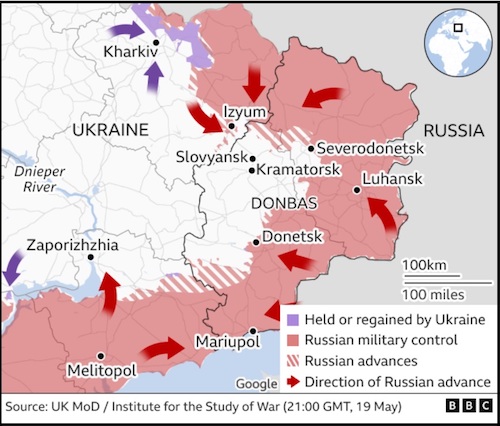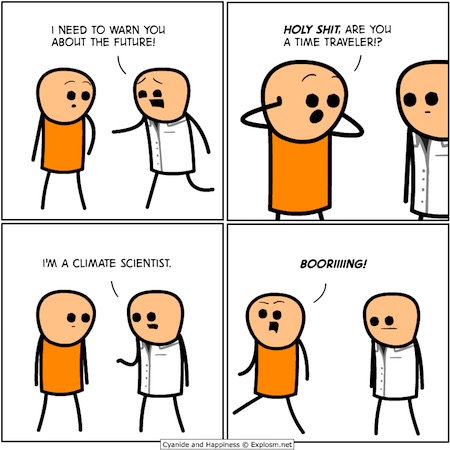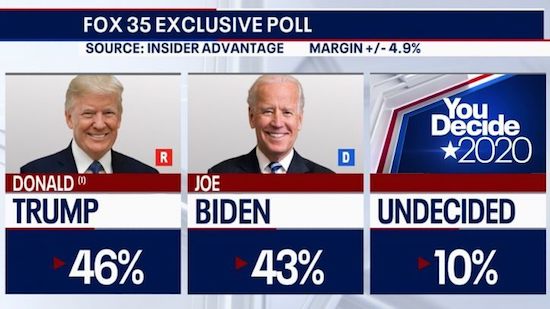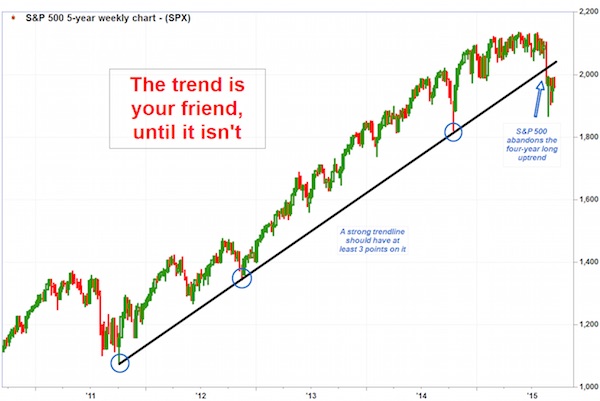
Edouard Manet Gypsy with a cigarette 1862



Bidenese



Maajid
https://twitter.com/i/status/1530516870436200448

“.. the Pandora Papers showed him to be just as crooked as his predecessors.”
• Servant Of The Corrupt (IM1776)
In February 2021, by order of President Volodymyr Zelensky, Ukraine shut down three domestic television channels, accusing them of spreading Russian “propaganda.” Three months later, Zelenksky arrested Viktor Medvedchuk, who was at the time leading the second-biggest party in Ukraine’s national parliament, the pro-Russia and Eurosceptic Opposition Platform for Life (OPZZh). Zelensky didn’t have trouble incinerating vaunted democratic norms well-before Russia crossed the Rubicon into Ukraine this year. So it was no surprise when he did it again amid the war in late March, invoking emergency powers under martial law to nationalize TV channels and ban 11 opposition parties, including OPZZh — all supposedly done in the name of combatting Russian misinformation and Russian sympathizers, even though OPZZh’s then-chairman, Yuriy Boyko, denounced the war and called for a ceasefire and the withdrawal of Russian troops from Ukraine. Zelensky, however, wouldn’t miss another opportunity to clip the wings of political opposition in his country, certainly not now that Western media rationalizes and glorifies his every move.
But the portrait of the Ukraine President as a democratic paragon whitewashes the real Zelensky and conceals a vast web of corruption and international skullduggery of which Ukraine is situated in the centre. Understanding the real Zelensky, requires seeing him as a creation of Ukrainian oligarch Ihor Kolomoisky. He is, in truth, a puppet of intrigue. It might be hard to believe now, but revelations from documents in the Pandora Papers — millions of files from offshore service providers leaked to the International Consortium of Investigative Journalists and shared with partners around the world — sent Zelensky reeling last year, threatening to end his political career. Though the actor-turned-politico campaigned as an anti-corruption reformer, the Pandora Papers showed him to be just as crooked as his predecessors.
Of more than 300 politicians and public officials, including several current and former national leaders, in more than 91 countries and territories to whom the documents were linked, Ukraine was home to more secret offshore holdings than any other, including Russia. The Organized Crime and Corruption Reporting Project (OCCRP), which contributed to the investigation, found that just before Zelensky was elected president, “he gifted his stake in a key offshore company, the British Virgin Islands-registered Maltex Multicapital Corp., to his business partner — soon to be his top presidential aide. And in spite of giving up his shares, the documents show that an arrangement was soon made that would allow the offshore to keep paying dividends to a company that now belongs to his wife.”

“come back coward, I’ll bite your kneecaps.”
• Russia Solidifies Gains in Eastern Ukraine (CTH)
If you were to read the play-by-play of information in the U.K. Telegraph, you could get whiplash from the diametrically opposed narratives coming from both sides in the propaganda war. On one hand the western narrative is that Russia is losing, getting weaker, running out of money and weapons. On the other hand, France and Germany are asking Russian President Vladimir Putin to release all of the captured soldiers he is gathering, while western media claim all the Ukraine retreats are “strategic”. It would appear the Monty Python knight has lost all his appendages and is yelling, “come back coward, I’ll bite your kneecaps.”

(Via Telegraph) – “Russia said its forces were in full control of the Ukrainian town of Lyman, a railway hub in the Donetsk region, on Saturday in a gain that would help set the stage for the next phase of the Kremlin’s offensive in the eastern Donbas. Ukrainian and Russian forces had been fighting for Lyman for several days. The town lies 40 km (30 miles) west of Severodonetsk, the largest Donbas city still held by Ukraine but now under heavy assault from Russian forces. The governor of Luhansk region, which along with Donetsk makes up the Donbas, said on Friday that Russian troops had entered Severodonetsk. The Russian gains indicate a shift in momentum in the war.”
Meanwhile the U.S. State Department, the actual combatant command center for the U.S. proxy war, along with internationally aligned diplomatic corps and the U.S. intelligence apparatus, are continuing to push the propaganda as if we cannot see how clearly staged it is. Indeed, with the Pentagon preferring a ceasefire and peaceful negotiations while the State Dept demands more war, these are very remarkable times on the other side of the looking glass.

“a serious step towards unacceptable escalation”
• US To Transfer Long-range Rocket Systems To Ukraine (PressTV)
The US has decided to further extend military aid to Ukraine, transferring long-range rocket systems to the country while Russia continues to make advancements in its special operations in the Donbas. US officials said on Friday that despite its earlier reservations in regard to sending missile systems to Ukraine, following Kiev’s insistence Washington had agreed to deliver them the Multiple Launch Rocket System (MLRS) or the M142 High Mobility Artillery Rocket System (HIMARS) next week. Western countries led by the United States had already provided Ukraine with long-range weaponry, including M777 howitzers. However, Kiev insisted that it wanted longer-range ground weapons, especially rocket launchers, to help it win artillery battles.
Till now, Washington had held back from providing Kiev with such weapons partly to avoid an escalation should Ukraine strike targets deep inside the Russian territories. American and diplomatic officials told Reuters that Washington had even relayed to Kiev the concerns White House officials had in regard to this issue. “We have concerns about escalation and yet still do not want to put geographic limits or tie their hands too much with the stuff we’re giving them,” one US official, who spoke to Reuters on condition of anonymity, was quoted as saying. However, Russian Foreign Minister Sergei Lavrov had already warned the White House against providing long-range missile systems to the country. Lavrov pointed out that providing Kiev forces with weapons that could reach Russian territory would be “a serious step towards unacceptable escalation” of the conflict.

Macron and Scholz spent 80 minutes demanding Putin do things they know he cannot do.
• Putin Urged To Hold ‘Direct, Serious Negotiations’ With Zelensky (BBC)
The leaders of France and Germany have urged Russia’s Vladimir Putin to hold “direct [and] serious negotiations” with Ukraine’s president, the German chancellor’s office said. Emmanuel Macron and Olaf Scholz spoke to Mr Putin by phone for 80 minutes. The pair “insisted on an immediate ceasefire and a withdrawal of Russian troops”, the chancellor’s office said. Russia’s leader said Moscow was open to resuming dialogue with Kyiv, according to the Kremlin. It did not mention the possibility of direct talks between Mr Putin and his Ukrainian counterpart, Volodymyr Zelensky. The Ukrainian president earlier said he was not “eager” for talks, but added they would likely be necessary to end the conflict. Russian and Ukrainian delegations have held multiple rounds of talks remotely and in person since Russia invaded on 24 February, but efforts have stalled of late.
France and Germany also urged Mr Putin to release 2,500 Ukrainian fighters taken as prisoners-of-war at the Azovstal steelworks in Mariupol. The sprawling factory became the last holdout in the southern port city, which endured relentless bombardment from Russian forces and now lies in ruins. Earlier this month, Moscow officials said the last fighters defending the plant had surrendered, while President Zelensky said they had been given permission to leave. Russia has previously said more than 900 of the fighters were moved to a reopened prison colony in Olenivka, a village in Russian-occupied Donetsk. A smaller number with serious wounds were taken to a hospital in the town of Novoazovsk, also in Donetsk. Ukraine hopes they will be released as part of a prisoner exchange – but Russia has not confirmed that. Some Russian lawmakers argue the fighters should be tried or even executed.

“..Russia exhibited enormous restraint as the US and Ukraine violated the Minsk Protocols and rejected requests for diplomacy..”
It doesn’t matter if you agree or not, what matters is that everyone in the west should be exposed to Russians view of this. And then form their opinions.
• Russia’s Necessary and Legal Military Response to US/NATO Aggression (Gritsch)
In 2014, the US initiated a proxy war against Russia by engineering the violent overthrow of Ukraine’s democratically-elected president. This ignited a bloody civil war on Russia’s border in which the US-installed and US-armed Kiev regime attacked the eastern provinces of Luhansk and Donetsk whose largely ethnically Russian residents opposed the US coup. The Organization for Security and Co-operation in Europe (OSCE) documented the Kiev regime’s attacks that killed thousands of civilians and terrorized the populace. In 2015, the US-installed then-president, Petro Poroshenko, publicly articulated Kiev’s anti-Russia stance and its policy for the Donbass:
“We will have jobs—they will not. We will have pensions—they will not. [….] Our children will go to schools and kindergartens—theirs will hide in the basements.” Popular Ukraine pundits openly called for Donbas residents’ extermination. In 2015, Congress lifted its ban on funding Ukraine’s neo Nazi militias and placed US military trainers on the ground inside Ukraine. NATO and the CIA also began training Ukraine regime forces–effectively establishing Ukraine as a de facto US/NATO mercenary state. During the past eight years, Russia exhibited enormous restraint as the US and Ukraine violated the Minsk Protocols and rejected requests for diplomacy. In 2021, US aggression against Russia increased dramatically once Biden took office–in Ukraine and in the Black Sea. US actions and Ukraine President Zelensky’s public statements generated immediate threats to the survival of the Russian nation-state.
The US government and the corporate media falsely characterize Russia’s special operation as entirely ‘unprovoked’ and an ‘illegal invasion’. These allegations ignore four conditions which each independently compelled President Putin and the Duma to initiate Russia’s denazification and demilitarization operation and which establish this intervention as consistent with international legal norms. Chief among the factors necessitating Russia’s immediate military response were indications of an imminent new massacre as 125,000 Ukraine forces amassed along the border of Donbass in December of 2021. This was never reported in the US corporate press. Instead, the US government and corporate media repeatedly stated that Russian troops were gathering on Ukraine’s border (inside Russia) and predicted an impending Russian invasion.
In hindsight, US intelligence could make this accurate claim because it was aware of the menacing buildup of Ukraine forces. Anticipating an imminent massacre, Russia was obligated to intervene militarily because it had a Responsibility to Protect (R2P) the citizens of Donbass. R2P is a political commitment to prevent genocide, war crimes, ethnic cleansing and crimes against humanity; it was endorsed by the United Nations at its 2005 world summit.

“..the centre of economic development [..] continues to move into the Asia-Pacific Region.”
• The Eurasian Economic Union Steps Up (Escobar)
The first Eurasian Economic Forum, in Bishkek, Kyrgyzstan, took place this week at a very sensitive geopolitical juncture, as Russian Foreign Minister Sergei Lavrov keeps stressing that, “the West has declared total war against us, against the entire Russian world. Nobody even hides this now.” It’s always important to remember that before Maidan in 2014, Ukraine had the option to become a full member of the Eurasian Economic Union (EAEU), and even balance it with a loose association with the EU. The EAEU comprises five full members – Russia, Kazakhstan, Kyrgyzstan, Belarus and Armenia – yet 14 nations sent delegations to the forum, including China, Vietnam and Latin American nations. There was much rumbling that the proceedings would be jeopardized by the serial sanctions packages imposed on Russia by the collective West.
There’s no question that some EAEU members – such as Kazakhstan – seem to be more worried about the effects of the sanctions than about fine-tuning business with Russia. Yet that’s not the point. The crucial point is that by 2025 they have to harmonize their legislation concerning financial markets. And that’s directly connected to what the executive body of the EAEU, led by Sergey Glazyev, is working on, extensively: designing the lineaments of an alternative financial/economic system to what the West would rather coin as Bretton Woods 3. The Eurasian Economic Forum was established by the Supreme Eurasian Economic Council explicitly to further deepen economic cooperation between EAEU members. No wonder the official theme of the forum was Eurasian Economic Integration in the Era of Global Shifts: New Investment Opportunities, focusing on strategic development in the industrial, energy, transport, financial, and digital areas.
President Putin’s speech to the plenary session was quite revealing. To really appreciate the scope of what’s implied, it’s important to remember that the Greater Eurasian Partnership concept was presented by Putin in 2016 at the St. Petersburg Economic Forum, focused on a “more extensive Eurasian partnership involving the Eurasian Economic Union” and including China, Pakistan, Iran and India. Putin stressed how the drive for developing ties “within the framework of the Greater Eurasian Partnership” (…) “was not the political situation but global economic trends, because the centre of economic development is gradually – we are aware of this, and our businesspeople are aware of this – is gradually moving, continues to move into the Asia-Pacific Region.”

“Qatar produces around 107 billion cbm of gas annually, and 80 percent of that is locked in long-term contracts. Only 10-15 percent can be diverted to Europe – the numbers don’t add up..”
• Qatar Gas Shipments To Germany Will Actually Come From Texas (MEE)
Germany and Qatar signed a deal last week to deepen their energy partnership focusing on the supply and processing of liquified natural gas (LNG). LNG is Qatar’s main export and is desperately needed in Germany as it seeks alternatives to its current energy dependency on Russian natural gas. Berlin is under pressure to introduce an energy embargo in response to Russia’s invasion of Ukraine. It also faces the prospect that Moscow could cut off gas supplies unilaterally – as it has already to Poland, Bulgaria and Finland – in retaliation for Germany’s diplomatic support and military aid to Ukraine But industry experts tell MEE that the deal is mired with caveats on the German side.
Thomas O’Donnell, an energy and geopolitical analyst based in Berlin, says the German government is losing political ground due to rising energy costs. He suggests the deal with Qatar amounts to a short-term gimmick intended to shore up support. “They failed to fill their gas storage before the winter last year and that led to nearly a 30 percent hike in energy costs for the domestic consumer. If they fail again there might be calls for the government to go,” said O’Donnell. “Around 56 percent of Germany’s gas consumption comes from Russia. That’s billions of cubic metres of gas through dedicated pipelines, NordStream1 and TurkStream. It would take a monumental effort to shift that heavy a dependency to another supplier.” According to O’Donnell, in 2021 Germany used around 71 billion cubic metres (cbm) of gas from Russian energy giant Gazprom.
Replacing such large volumes with Qatari gas is simply not possible. “Qatar produces around 107 billion cbm of gas annually, and 80 percent of that is locked in long-term contracts. Only 10-15 percent can be diverted to Europe – the numbers don’t add up,” he said. O’Donnell said that European countries’ desperation means that they are paying a heavy price for spot gas – that is large deliveries of gas purchased in one-off transactions. These transactions are often made on an emergency basis when the buyer has to pay a much higher rate than when purchased on long-term contracts. The current price of spot gas is up 176 percent from last year. “The US has the most spot gas available in the market and much of it is being bought by Europe at very high rates,” said O’Donnell.
Von der Leyen is a psychopath
Ursula von der Leyen: “We need to buy Russian oil so Putin doesn’t make more profits elsewhere” pic.twitter.com/6n37A2HkGg
— Wittgenstein (@backtolife_2022) May 28, 2022

“..just because God ‘told’ George Bush to invade Iraq in 2003, that did not make him or his forces Christian.”
• Civilisation and Anti-Civilisation (Batiushka)
Western war has always consisted of highly organised violence, aided by the most aggressive high technology. Advances in military technology have all been initiated by the West. It used to be castles against arrows, the lethal crossbow against pikes, cannon against stone walls, the musket against bows, the Maxim gun, invented by the Anglo-American ‘Sir’ Hiram Maxim (3) against spear-throwing Africans, then it was poison gas (as used by Hitler, that is Churchill (sorry for the Bushism, ‘anyway’) against the Kurds), then Agent Orange, cluster bombs and uranium-tipped shells against rifles. To illustrate this, let us think about how those used to the way that such technology is exploited criticise the special operation (not war) in the Ukraine (4). They claim that the progress of the Russian operation, carried out by relatively small numbers of liberation forces from Donetsk and Lugansk and of Confederate Russian troops, is ‘too slow’.
Here they misunderstand how the Allied/Confederate forces use their military technology. It is quite unlike the US and its Union NATO vassals. The latter carpet bomb, they cause ‘collateral damage’ (the NATO euphemism for the mass murder of innocent victims) and are hugely destructive, as though war was all a special effects show, a spectacle for entertainment as in Hollywood films, most of which portray great destruction. This is why nearly 20 years ago the American Rumsfeld spoke of the US destruction of civilian infrastructure in Iraq as ‘shock and awe’, which is just another euphemism – Hitler would have called it ‘Blitzkrieg’. Yes, of course, Russian civilisation conducts military operations ‘slowly’ (5): it is not a US-style special effects operation, it is meant to avoid civilian and military casualties. You cannot translate ‘collateral damage’ into Russian, you can only paraphrase it.
Western religion has a similar story to tell. As we have said, every civilisation has a set of sacred values. The Western too and though it calls its religion ‘Christianity’, it is not. For instance, it insists on calling the Crusaders and Teutonic Knights ‘Christians’. But just because you are a bloodthirsty barbarian who commits genocide with a cross on your uniform, that does not make you a Christian. Just as Nazis wore a belt with ‘Gott mit uns’ (‘God with us’) stamped on it, that did not make them Christian either. And when the Nazis put crosses on their tanks and dive-bombers, it did not make them Christian either (though the crosses did take in some naïve Western Ukrainians in 1941). And just because God ‘told’ George Bush to invade Iraq in 2003, that did not make him or his forces Christian. Frankly, the Western use of the word Christian is blasphemous to Orthodox Christians and the more accurate use of words like ‘Catholic’ and ‘Protestant’ is insulting to those who are of those religions.

“What is this supposed to be, the Summit of the Americas, or the Summit of the Friends of America?”
• Mexican President Unlikely To Attend Summit Of The Americas (LATimes)
Despite a major U.S. lobbying effort, the president of Mexico hinted strongly on Friday that he will not attend a high-stakes regional summit next month in Los Angeles because the Biden administration refuses to invite a trio of leftist governments. Mexico is arguably the most important Latin American participant in the upcoming Summit of the Americas, which administration officials have said will include a special focus on immigration. It starts June 6. In his daily marathon press conference, President Andrés Manuel López Obrador said he was still awaiting a response from President Biden or the U.S. State Department to his demand that all countries in the Western Hemisphere be invited.
Every host nation for the summit, which occurs every three or four years, has discretion in drawing up the guest list, and most if not all countries are routinely included. This is the first time the summit is taking place in the U.S. since its 1994 inaugural session in Miami. Administration officials have made it clear they will not invite Venezuela or Nicaragua, because those countries’ authoritarian leaders do not represent the model of democracy Washington and others in the region seek to promote. U.S. officials also said initially they would not invite Cuba, then suggested they might welcome a “low level” delegation from Havana. A diminished status did not appeal to Cuban officials, however, and President Miguel Díaz-Canel said earlier this week he will not attend.
Cuba was present at the last two Summits of the Americas, in Panama and Peru. In Panama in 2015, then-President Obama famously shook hands with then-President Raul Castro, the first such contact between the Cold War enemies in decades. Months later, Washington and Havana opened diplomatic ties and began a warming of trade and travel relations not seen for half a century. The opening was frozen by President Trump and has only haltingly and in minor ways been renewed by Biden, despite his promises as a presidential candidate.
López Obrador, a consummate showman, deliberately did not commit in his remarks Friday morning but ultimately made clear he would not attend if Cuba, Venezuela and Nicaragua were not invited. Instead, he would send a delegate, most likely his more-U.S.-friendly foreign secretary, Marcelo Ebrard. “We are going to wait to see what they [U.S. officials] decide, but regardless, Mexico will participate,” the president said. “It’s just that I will not attend if all countries are not invited.” He added: “What is this supposed to be, the Summit of the Americas, or the Summit of the Friends of America?”

“The only European country on the WHO’s board is Slovakia..”
• The World Health Organisation Has Lost All Credibility (Clark)
Let’s be honest: is there anyone out there who has faith in the ability of the World Health Organisation (WHO) to tackle a future pandemic? Any lingering hope that the WHO might be an organisation fit to be trusted with global heath concerns has pretty well evaporated with the election, by acclamation, of China as one of the 12 members of its executive board on Friday. It is true, of course, that an international body must have representation from all over the world if it is going to win the near-universal cooperation it needs in order to operate. It can’t be led entirely by western democracies and wealthy South Asian countries even if they might have the best skills available; you need members able to tap into every culture and religion on Earth.
But ought we really be trusting leadership of the WHO to a government which is not merely a malignant dictatorship, accused of human rights abuses against its own citizens – but which has also obstructed an investigation into the high likelihood that it accidentally caused the last pandemic? The story of how Covid-19 began has been investigated very thoroughly in Alina Chan and Matt Ridley’s excellent book, Viral: the Search for the Origin of Covid-19. If no one has quite pegged down where the virus came from – and probably never will – there is at least a very strong case to answer that it originated in Chinese laboratory experiments aimed at researching how to tackle coronaviruses, and that it entered the population through a laboratory leak. It would hardly be unprecedented for a virus to leak from a laboratory in this way – even if it would make it way and above the world’s most expensive laboratory accident.
What has been China’s response to this possibility? To try to snuff out any investigation into the matter. Bizarrely, a WHO team allowed into China in early 2021, and chaperoned at every turn, tried to dismiss a lab leak, announcing that it would not investigate the matter any further. It isn’t just China whose presence on the WHO Executive Board will cause alarm. Also on the list is Brazil, whose own parliament has recommended criminal charges against the country’s president, Jair Bolsonaro, over his handling of the pandemic. Then there is Yemen, which is in the grip of civil war. The only European country on the WHO’s board is Slovakia, which hardly has the greatest political clout and which happens to have had one of the highest deaths rates from Covid-19 anywhere.
Sagan
https://twitter.com/i/status/1530461678772559872

All critical thinking banned. Why would anyone still want to become a doctor?
• California Poised to Adopt ‘Medical Misinformation Bill’ (ET)
The California Legislature is poised to pass Assembly Bill 2098, described as a “medical misinformation bill.” If passed, the new law would prohibit doctors from freely providing medical advice and treating their patients if those practices run counter to the official state sanctioned position. In April 2020, the State of California Department of Consumer Affairs, the California State Board of Pharmacy, and the Medical Board of California issued a statement regarding the “improper prescribing of medications related to treatment of Novel Coronavirus,” such as hydroxychloroquine, warning that “inappropriately prescribing or dispensing medications constitutes unprofessional conduct in California.”
On June 29, 2021, the Federation of State Medical Boards issued a warning, stating that “Physicians who generate and spread COVID-19 vaccine misinformation or disinformation are risking disciplinary action by state medical boards, including the suspension or revocation of their medical license.” In August 2021, Dr. Anthony Fauci said there was no evidence that ivermectin works, and that it’s more likely to cause harm. In December 2021, the Food and Drug Administration issued a warning headlined, “Why You Should Not Use Ivermectin to Treat or Prevent COVID-19.” In an updated April 29, 2022, report, the COVID-19 Treatment Guidelines Panel said it “recommends against the use of ivermectin for the treatment of COVID-19, except in clinical trials.”
Should AB 2098 become law, doctors who prescribe medications not approved by the state or who claim unsanctioned drugs are effective would see their licenses revoked and face strict penalties and disciplinary actions by the Medical Board of California. In short, AB 2098 would designate the dissemination of information not approved by the state related to the SARS-CoV-2 coronavirus, which causes “COVID-19,” as misinformation or disinformation, which constitutes unprofessional conduct. One physician, Dr. Syed Haider, has already been reported to four state medical boards by pharmacists he says “don’t like filling ivermectin prescriptions.” He has also been forced to retain a lawyer to protect his medical license.

And they’ll all sell their Tesla’s.
• SEC Publishes Letter Asking Elon Musk To Explain Late Twitter Filing (G.)
The US financial watchdog has contacted Elon Musk about the disclosure of his stake in Twitter, asking the Tesla chief executive why he appeared to file a crucial form late. The Securities and Exchange Commission published a letter sent to the world’s richest man in which it asks a series of questions about how he declared his acquisition of a 9.2% stake on 4 April. The move prompted a flurry of corporate activity that led to Twitter accepting a $44bn (£35bn) takeover bid from Musk on 25 April – although he has since announced that the deal is “on hold” while he seeks more information about the proportion of fake accounts on Twitter.
In the 4 April letter, the SEC asked why a schedule 13G form announcing Musk’s acquisition of a large shareholding “does not appear” to have been filed within the required 10 days of the stake passing the 5% level where it needs to be disclosed publicly. According to Musk’s own filing, he passed the 5% level on 14 March and therefore should have filed the form by 24 March. “Please advise us why the schedule 13G does not appear to have been made within the required 10 days from the date of acquisition as required by rule 13d-1(c), the rule upon which you represented that you relied to make the submission,” said the SEC in the letter, dated 10 days before Musk announced his takeover bid. The SEC said that once it had reviewed Musk’s reply it “may have additional comments”.
In 2018, Musk reached a settlement with the SEC over a tweet in which he said was considering taking Tesla off the stock market and into private ownership and had “funding secured” for the proposal. Investors filed a lawsuit against Musk on Wednesday in which they claimed Musk had saved himself $156m by failing to disclose that he had bought more than 5% of Twitter in a timely manner. The letter also asks Musk to explain why he filed a 13G, which is for passive investors who are not preparing to shake up the business in question. The SEC points out that an investor must file a different form, a 13D, if they have bought the shares with the intention of changing or influencing the control of the company in question. The day after filing his initial form, Musk refiled it as a 13D, for investors who intend to take an active role.

Problem: the UN has no credibility left either.
• UN Warns of ‘Total Societal Collapse’, Breach of Planetary Boundaries (BT)
When the United Nations published its 2022 ‘Global Assessment Report on Disaster Risk Reduction’ (GAR2022) in May, the world’s attention was on its grim verdict that the world was experiencing an accelerating trend of natural disasters and economic crises. But not a single media outlet picked up the biggest issue: the increasing probability of civilisational collapse. Buried in the report, which was endorsed by UN Secretary-General António Guterres, is the finding that escalating synergies between disasters, economic vulnerabilities and ecosystem failures are escalating the risk of a “global collapse” scenario. This stark conclusion appears to be the first time that the UN has issued a flagship global report finding that existing global policies are accelerating toward the collapse of human civilisation.
Yet somehow this urgent warning has remained unreported until now. The report does not suggest that this outcome is inevitable or specify how close to this possibility we are. But it does confirm that, without radical change, that’s where the world is heading. he UN’s Sustainable Development Goals and the Sendai Framework are a set of social, economic, legal, political and institutional measures to reduce “disaster risk and losses” – both involve targets to 2030 which the world is in danger of failing to meet. That failure, however, is directly linked to the rate at which human activities are interfering with natural systems, in particular, ‘planetary boundaries’.
The planetary boundaries framework was developed by the Stockholm Resilience Centre in 2009 to provide what it calls a “science-based analysis of the risk that human perturbations will destabilise the Earth system at the planetary scale”. This framework identifies a range of nine key ecosystems which, if pushed passed a certain threshold, will dramatically reduce the “safe operating space” for human habitation. The report notes that at least four of the nine planetary boundaries now seem to be operating outside the safe operating space. While land system change and climate change are in a zone of “uncertainty with increasing risk” of overstepping the safe operating space, the report says, biochemical flows and ‘novel entities’ (“new engineered chemicals, materials or organisms and natural elements mobilised by human activity such as heavy metals”) have “far exceeded” that space.




Bourla neck
https://twitter.com/i/status/1529761915496542208



Life is so, so beautiful
https://twitter.com/i/status/1530264225763020801



Support the Automatic Earth in virustime with Paypal, Bitcoin and Patreon.


















